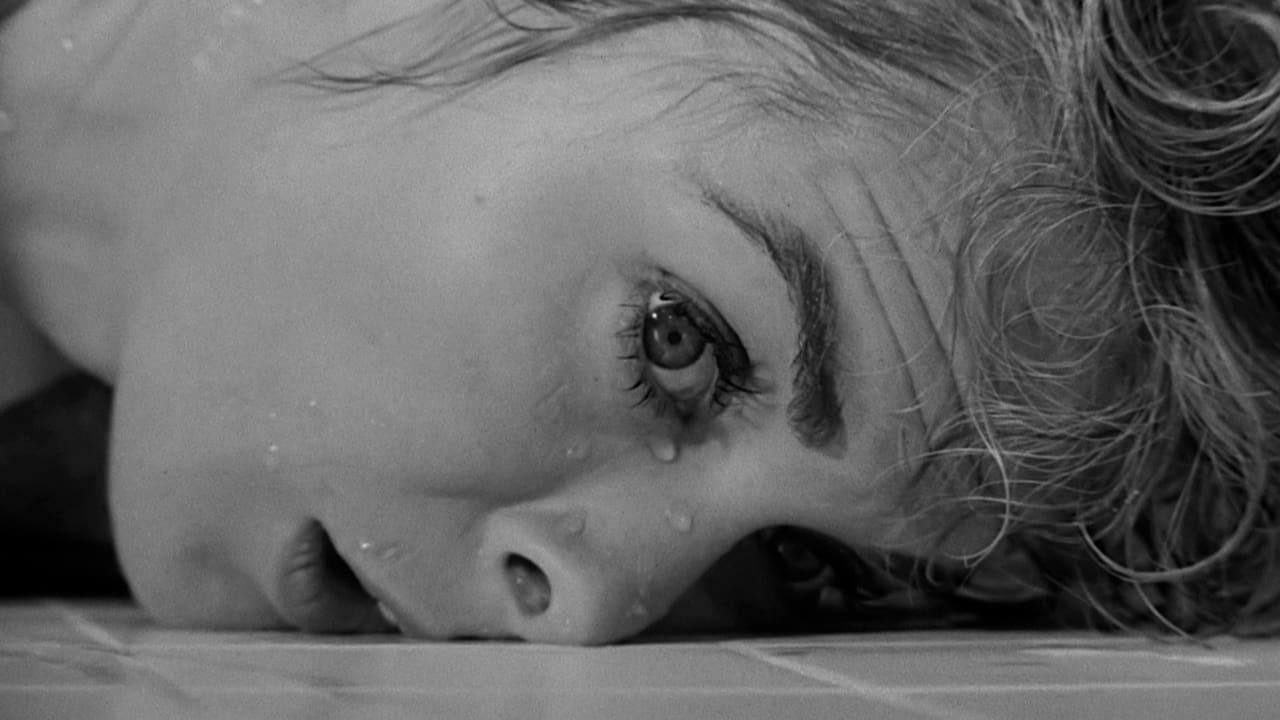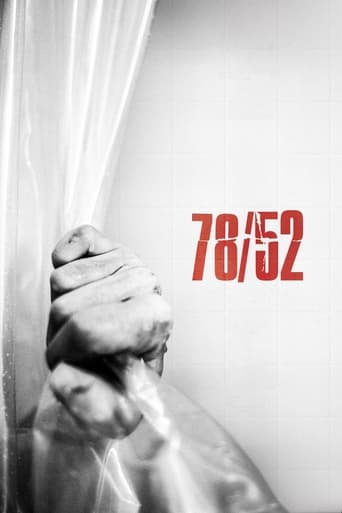

The shower scene in Alfred Hitchcock's Psycho is considered one of greatest, definitive and most ground-breaking in both horror and in cinema, this documentary look at its enduring legacy, and how it was achieved. Basically the scene in the film, where Marion Crane (Janet Leigh) is murdered by Norman Bates (Anthony Perkins), took a week to film, requiring 78 set-ups and 52 cuts (hence the title of this film). This film really examines and deconstructs all aspects about the film, leading up to the murder, including things the audience would never have noticed or thought about before. This includes feeling empathy towards Bates rather than perhaps Crane, a painting specifically chosen to feature in the study scene, the iconic violin music score by Edward Herrmann, the audience using their imagination (the knife is never seen puncturing the body, only the noise (a knife piercing an apple), blood (chocolate sauce) and the stabbing), and the voyeurism (the shower being like a witness, and the plughole becoming Marion's eye). It references to Hitchcock's other works that led up to and followed Psycho, how this pivotal scene has inspired other works in horror and cinema (including homages and spoofs), and how early and continuing cinema has terrified audiences. With contributions from Peter Bogdanovich, Jamie Lee Curtis (who paid homage to her mother, Janet Leigh, recreating the shower scene in the TV show Scream Queens), Guillermo del Toro, Danny Elfman (who recreated Herrmann's score for the crap Gus van Sant remake), Sir Alfred Hitchcock (archive footage), Janet Leigh (archive footage), Eli Roth, Leigh Whannell and Elijah Wood. If you have always wanted to know how the famous scene of Psycho was achieved, what filmmakers and experts think of it, how it has maintained its legendary status, and how it has become so important in terms of how it arguably changed the course of cinema, then this is definitely a worthwhile documentary. Very good!
... View MoreThis documentary about the infamous shower scene in Psycho has a technical title. 78 camera setups and 52 cuts that took seven days to film.Contributors include Elijah Wood, Bret Easton Ellis, Peter Bogdanovich, David Thomson, Richard Stanley, Sam Raimi, Walter Murch, Eli Roth, Mick Garris, Guillermo del Toro and Jamie Curtis who talk about the shower scene and how it was put together. Bogdanovich also does his trademarked mimicry.There are important aspects discussed such as how to get round the censors. Shooting in black and white helped as you do not see any red blood. We even find out how influential the violence in Psycho was for other films. Italian filmmakers took it to a visceral horror art level. Martin Scorsese even mirrored it in Raging Bull.However at 90 minutes it does feel a bit overlong, there was a lot of waffle and Psycho has been examined to death already.
... View MoreLet's say you don't have the time for a film class; do you have 1/2 hours to spend to learn a major chunk about film, let's say theme, editing, and auteurism? Then see 78/52, a superb analysis of Hitchcock's famous shower scene.Wayne Miller, who knows more about Hitch than anyone else I know and regularly visits as guest host on It's Movie Time, gave it thumbs up with the observation that the doc was replete with facts and observations he didn't even know.Here is a perfect example of the ideal educational mantra: to teach and delight.
... View MoreA 91-minute analysis of the famous shower scene from Hitchcock's 'Psycho' and how it changed the course of cinema. The first of its kind, a feature length documentary on one scene. The film gets its name '78/52' from 52 shots in a 78 second sequence. It's very entertaining and incredibly rich with goodies you never considered went into the making of the famous scene. I loved the archival Hitchcock commentary they recovered. Though, as I personally feel the movie horror scene has drastically changed (you can decide for the better or for worse), to have young horror film makers (of some damn awful films) and irrelevant actors interviewed to share their thoughts in quite enthusiastic ways suggests that Hitchcock's achievement is less pioneering than the film makes it seem. That aside, I'm surprised they pulled it off, you can tell the director (who is obviously a massive Hitchcock nerd) adores the content and it really shows.
... View More